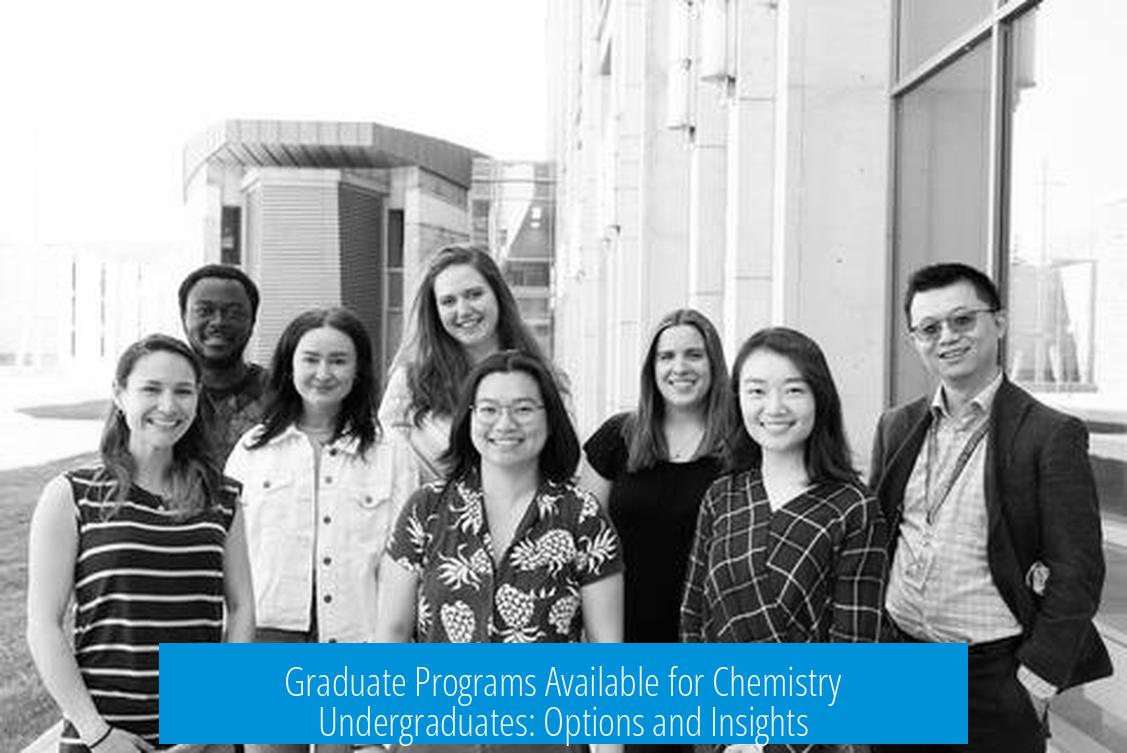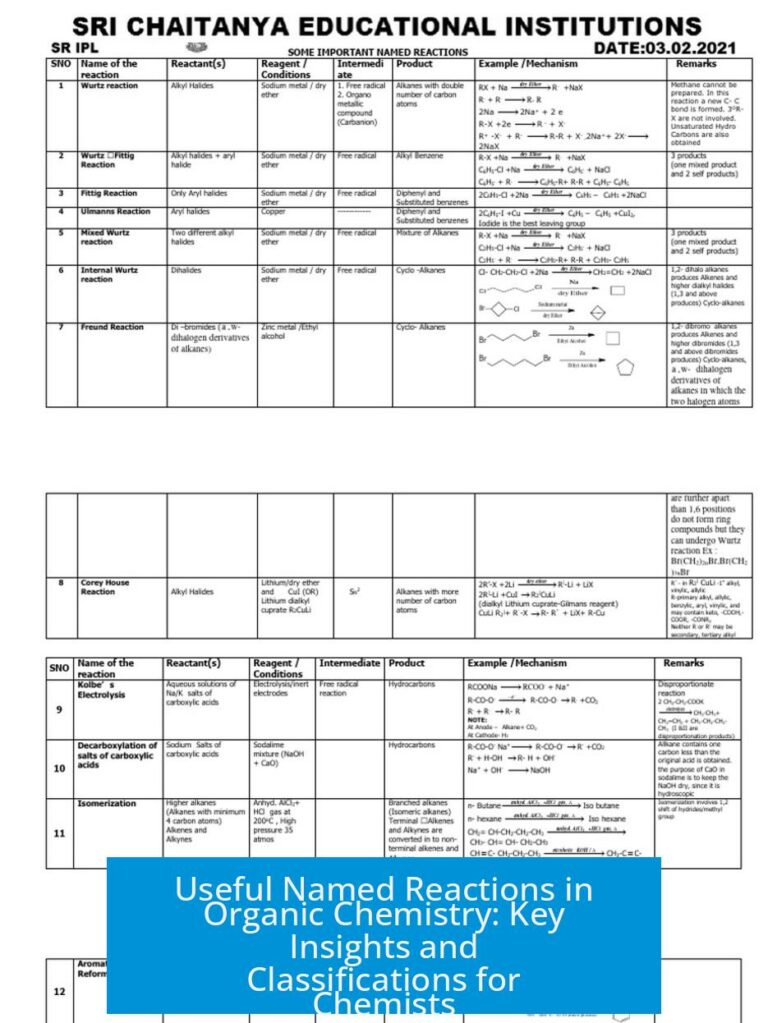What Graduate Programs Accept Chemistry Undergraduates?
Chemistry undergraduates have access to a broad range of graduate programs spanning diverse fields such as pharmacy, law, engineering, and beyond. Their background in chemistry provides strong qualifications for entry into specialized and interdisciplinary graduate studies. This article outlines key graduate pathways open to chemistry majors, including professional programs and research-based degrees, while providing strategic advice on program selection.
1. Pharmacy Graduate Programs
Chemistry graduates frequently enter pharmacy-related graduate programs. Areas such as medicinal chemistry, pharmacology, and physical pharmacy welcome students with strong undergraduate chemistry foundations.
- Medicinal Chemistry: Focuses on drug design and synthesis, combining organic chemistry principles with biology.
- Pharmacology: Examines drug action mechanisms and interactions within biological systems.
- Physical Pharmacy: Studies physicochemical principles relevant to drug formulation and delivery.
Programs in these disciplines typically accept chem majors, recognizing their relevant coursework and lab skills. The strong chemical knowledge complements these pharmacy fields, enhancing graduate success.
2. Veterinary Pharmacology
Though less common, chemistry undergraduates have pursued doctoral studies in veterinary pharmacology. This specialization explores drug effects in animal health and often overlaps with pharmacology and toxicology.
Admission may require demonstrating interest and relevant experience in biological or animal sciences alongside chemistry.
3. Law School with a Focus on Patent Law
Chemistry graduates often transition into law school, particularly to specialize as patent attorneys. This path leverages their scientific training to handle intellectual property law related to chemical inventions.
- Patent law requires deep technical understanding, which chemists possess.
- It serves as an alternative career to traditional science or research roles.
- Chemistry majors are well-positioned to pass the patent bar exam due to their technical expertise.
4. Graduate Chemistry Programs at Major Universities
Chemistry undergraduates can directly pursue graduate studies in chemistry at many major universities. Choosing the right program involves careful consideration beyond just institutional reputation.
Key Advice:
- Focus on selecting the professor or research mentor whose interests and style match your goals.
- Mentorship is critical and often more impactful than the name of the university.
- Attend American Chemical Society (ACS) conferences to network with university representatives actively recruiting graduate students.
Many universities offer diverse specializations within chemistry, allowing customized research trajectories.
5. Materials Science and Engineering (MSE)
Chemistry undergraduates are also admitted to graduate programs in Materials Science and Engineering. While this field diverges somewhat from classical chemistry, it draws heavily on chemical principles to develop new materials.
- MSE programs accept many chemists.
- The research often involves chemistry at atomic and molecular levels.
- This option expands career possibilities into areas like nanotechnology, polymers, and electronic materials.
6. Chemical Engineering Graduate Programs
Chemistry majors with strong mathematical skills can enter graduate Chemical Engineering programs, usually at the master’s level. This transition may require bridging classes to fill gaps in engineering coursework.
- Engineering programs expect proficiency in calculus, differential equations, and physics.
- Bridging courses can extend the timeline, sometimes requiring additional years.
- Strong chemistry knowledge benefits areas like process chemistry and catalyst development.
7. Versatility of a Chemistry Bachelor’s Degree
The chemistry bachelor’s degree is among the most versatile for graduate education. Its rigorous training in scientific reasoning and lab work prepares students for various professional schools.
- Medicine
- Pharmacy
- Dental
- Law (particularly patent law)
This versatility results from chemistry’s blend of analytical thinking and subject matter expertise applicable in many domains.
8. Career Considerations Outside Graduate School
Not all chemistry graduates pursue graduate studies immediately. For those entering industry, internships can open entry-level business opportunities related to chemistry.
Common career paths include technical sales, scientific support, and quality control. Transition to engineering roles may be difficult without additional coursework, especially due to the senior project requirements in engineering majors.
- Technical sales positions often value chemistry knowledge for client interactions.
- Engineering graduate programs usually require technical prerequisites and project experience.
- Internships can strengthen resumes and clarify career options.
Summary of Graduate Program Options for Chemistry Undergraduates
| Graduate Program | Key Fields/Sub-specialties | Notes for Chemistry Undergrads |
|---|---|---|
| Pharmacy | Medicinal Chemistry, Pharmacology, Physical Pharmacy | Strong fit; many programs accept chem majors |
| Veterinary Pharmacology | Drug effects in animal health | Less common, but accessible with relevant interest |
| Law School (Patent Law) | Patent Attorney Path | Alternative to research; patent bar advantage |
| Chemistry Graduate Programs | Multiple research areas | Choose professor carefully; network at ACS |
| Materials Science and Engineering (MSE) | Nanomaterials, Polymers, Electronics | Accepts chemists, connects to applied chemistry |
| Chemical Engineering | Process Engineering, Catalysis | Requires math skills and bridging courses |
Key Takeaways
- Chemistry undergraduates have flexible graduate options in pharmacy, law, engineering, and chemistry research.
- Graduate school success depends greatly on selecting mentors aligned with career goals.
- Law school for patent law offers an attractive alternative for chemists inclined away from lab work.
- Materials Science can broaden career directions beyond traditional chemistry.
- Strong math abilities open avenues into chemical engineering graduate programs.
- The chemistry degree is versatile, supporting entry into professional schools and diverse careers.
Which pharmacy graduate programs accept chemistry undergraduates?
Most pharmacy graduate programs, including medicinal chemistry, pharmacology, and physical pharmacy, accept chemistry majors. These fields value the strong chemistry background from undergraduates.
Can chemistry undergrads pursue law school, especially patent law?
Chemistry graduates often go to law school to become patent attorneys. Chemistry knowledge helps in patent law related to scientific inventions and intellectual property.
Are chemistry majors eligible for graduate programs outside traditional chemistry disciplines?
Yes. Programs like veterinary pharmacology, materials science and engineering, and chemical engineering often accept chemistry undergrads. Some may require bridging courses, especially in engineering.
How important is the choice of a professor when applying to graduate chemistry programs?
Choosing the right professor or mentor is crucial. It can be more important than the school itself since your research experience depends on this relationship.
Is it possible for chemistry graduates to enter medical, dental, or pharmacy schools?
Chemistry bachelor’s degrees are versatile. Many use them to enter professional schools like medical, dental, and pharmacy schools because of the scientific foundation it provides.





Leave a Comment